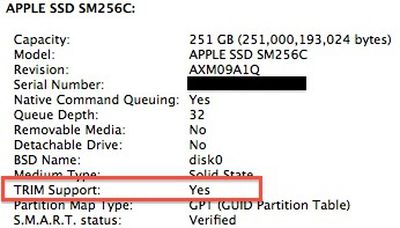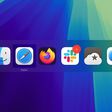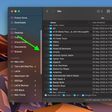Mac OS X Lion Roundup: Recovery Partitions, TRIM Support, Core 2 Duo Minimum, Focus on Security
With the first developer preview of Mac OS X Lion having been out for over 24 hours now, some additional points of interest are surfacing from those who have had a chance to look through the build. Among the interesting observations:
- Apple has added support for a separate recovery partition, hiding away utilities needed for repair and troubleshooting right on the user's hard drive. The new system will allow users to boot to the recovery partition without the need for an operating system disc. The move, along with the shift to Mac App Store distribution for the developer preview, signal a reduced reliance on DVDs that may become important if other notebooks follow the MacBook Air's lead and see their internal optical drives removed entirely.
- As
noted by MacGeneration [
Google translation], Apple has added TRIM support in this initial developer build of Mac OS X Lion. TRIM support provides for optimization of solid-state drives by cleaning up unused blocks of data and preparing them for rewriting, preventing slowdowns that would otherwise occur over time as garbage data accumulates.
- Mac OS X Lion requires a minimum of an Intel Core 2 Duo, leaving out compatibility for Apple's earliest Intel-based machines offering Core Solo or Core Duo processors.
- CNET notes that Apple has apparently invited a number of security researchers to test out Mac OS X Lion, a move that seems to signal a more open relationship with those who are trying to find security vulnerabilities in Apple's software.
Popular Stories
Apple may have updated several iPads and Macs late last year and early this year, but there are still multiple new devices that we're looking forward to seeing in 2025. Most will come in September or October, but there could be a few surprises before then.
We've rounded up a list of everything that we're still waiting to see from Apple in 2025.
iPhone 17, 17 Air, and 17 Pro - We get...
A new report from The Information today reveals much of the internal turmoil behind Apple Intelligence's revamped version of Siri.
Apple apparently weighed up multiple options for the backend of Apple Intelligence. One initial idea was to build both small and large language models, dubbed "Mini Mouse" and "Mighty Mouse," to run locally on iPhones and in the cloud, respectively. Siri's...
Apple in October 2024 overhauled its 14-inch and 16-inch MacBook Pro models, adding M4, M4 Pro, and M4 Max chips, Thunderbolt 5 ports on higher-end models, display changes, and more. That's quite a lot of updates in one go, but if you think this means a further major refresh for the MacBook Pro is now several years away, think again.
Bloomberg's Mark Gurman has said he expects only a small...
While the iPhone 17 Pro and iPhone 17 Pro Max are not expected to launch until September, there are already plenty of rumors about the devices.
Below, we recap key changes rumored for the iPhone 17 Pro models as of April 2025:
Aluminum frame: iPhone 17 Pro models are rumored to have an aluminum frame, whereas the iPhone 15 Pro and iPhone 16 Pro models have a titanium frame, and the iPhone ...
On this week's episode of The MacRumors Show, we catch up on the latest iOS 19 and watchOS 12 rumors, upcoming devices, and more.
Subscribe to The MacRumors Show YouTube channel for more videos
Detailed new renders from leaker Jon Prosser claim to provide the best look yet at the complete redesign rumored to arrive in iOS 19, showing more rounded elements, lighting effects, translucency, and...
YouTube channel Front Page Tech is back today with another video that provides a closer look at iOS 19's alleged design changes.
The video contains re-created renders of iOS 19, which are allegedly based on real footage of the software update, provided by sources within Apple. Overall, iOS 19 is expected to have a more glass-like, visionOS-inspired design, with added translucency for user...
Apple will be permanently closing its store at the Northbrook Court shopping mall in the Chicago suburb of Northbrook on April 26, the company has announced.
Apple has added the following notice to the store's web page:Thank you Northbook. Apple Northbrook is closing on April 26 at 7pm. We're still here for you. Please visit apple.com/retail to find your nearest store.Apple Northbrook opened ...
Apple released the first beta of iOS 18.5 last week, and so far the software update includes only two minor changes.
The changes are in the Mail and Settings apps.
In the Mail app, you can now easily turn off contact photos directly within the app, by tapping on the circle with three dots in the top-right corner.
In the Settings app, there is some new AppleCare+ information.
For ...
Apple's current struggles with Apple Intelligence and Siri began in early 2023 when AI head John Giannandrea sought approval from CEO Tim Cook to purchase more AI chips for development, according to a new report from The New York Times.
Cook initially approved doubling the team's chip budget, but CFO Luca Maestri reportedly reduced the increase to less than half that amount, and instead...























